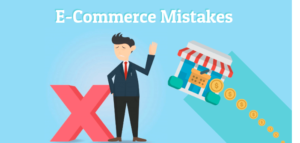Guide to Legalese for Veteran Business Owners
By James Pruitt, Senior Staff Writer
We’ve all heard of “legalese.” It’s famously confusing. But how are we supposed to follow the law when barely understand the letter of it? We all must deal with business contracts, especially in the business world. But slogging through the thick language is enough to send the best of us into a trance.
What do Veteran Business Owners need to know? Let’s start with the basics that might help us wade through the marshland without getting stuck in the mud.
Business owners should understand the concept of offer and acceptance. An offer legally binds us and grants us the right to accept at any time before withdrawal. In fact, the offeror may withdraw at any time before acceptance. Business owners should realize the weight of such terms when dealing with customers and contractors.
Weasel words abound, so scan any document you sign. Also, here is an important point. Not every contract involves a signature on paper.
Before you sign (or agree to) a contract, look out for these terms, however, worded, before any danger breach:
Offer: Remember that the offer itself carries its own legal weight. The offer in most cases grants the right to accept. Ideally, the offer carries terms precise enough to convey what is expected. Assuming a “meeting of minds” (and yes, that is a term of art), the offer becomes law upon acceptance.
Acceptance: When the offer is accepted, it binds both parties. An outstanding question remains: what are the terms?
Negotiators need to think of what they are agreeing to. Also, think carefully about how you are supposed to agree to it. sometimes just behaving like you’ve sealed the deal is enough to bind you in court.
Breach: This is a magic word. A contract binds each party. The terms of the contract, however, may get wrangled over in court. Parties should always know what they agreed to.
Force Majeure: Some legal terms are tough to pin down. Force majeure can encompass any variety of circumstances that make performance impossible. It is a fancy way of saying undue burden.
Perhaps Hurricane Katrina just struck on the other side of the country, where you get your supplies. Maybe someone in the supply chain got the flu during the Pandemic. The situation will differ on a case-by-case basis, and the burdened party may be excused from performing their part of the deal.
Parties: A contract should make clear the identity of the parties.
Indemnity, Waiver, Hold Harmless: Each of these terms is a fancy piece of jargon to get someone off the hook.
First, a contract may indemnify against harm to third parties, assigning liability entirely to one of the contractors.
Second, a waiver may spell out conditions under which some responsibility under some circumstance. Occasionally, a contract may even waive liability for a court claim. These clauses may or may not be completely enforceable and should be read carefully.
Third, a contract may hold a party harmless in cases of harm to the other party. Again, these clauses have varying degrees of legality, and their validity should be verified by an attorney.
Now let’s see what happens after a breach:
Arbitration or Mediation: In some cases, parties may agree to pass through a professional who will settle disagreements. They may escape a trial in court, but the resulting decision is considered an enforceable contract.
Forum/Choice of Law: Sometimes, the physical location of a court case may influence the outcome of a court case. Other times, controversy arises over the law to be applied case itself. Lawyers routinely fight over these questions. The law is not the same in any jurisdiction. Similarly, the forum, or physical location, may unduly burden one party. For this reason, parties often spell out these issues beforehand during the formation of the contract.
Liquidated Damages: Contracts may prescribe a preset compensation in case things fall through. These clauses are usually enforceable when reasonable. However, remember that “reasonable” may be a matter for the courts to decide.
Severability: Sometimes, part of a contract is simply unenforceable. A severability clause ensures that the rest of the contract is still in force.
Each of these terms may be referred to as something else. However, all appear routinely in business, and even in personal transactions. An understanding of the basic principles behind each can term prevent a serious headache for everyone involved.
Disclaimer: This article is for informational purposes only. It was not written by attorneys and should not be considered legal advice. VAMBOA recommends that you consult your own attorney before entering into any type of legal agreement.
VAMBOA, the Veterans and Military Business Owners Association hope that this article has not only been valuable but provided some unique perspective. We work hard to bring you important, positive, helpful, and timely information and are the “go-to” online venue for Veteran and Military Business Owners. VAMBOA is a non-profit trade association. We do not charge members any dues or fees and members can also use our seal on their collateral and website. If you are not yet a member, you can register here: https://vamboa.org/member-registration/
We also invite you to check us out on social media too.
Facebook: https://www.facebook.com/vamboa
Twitter: https://twitter.com/VAMBOA
Do not forget that VAMBOA members receive significant discounts on technology needs. Check them out here: https://vamboa.org/dell-technologies/












